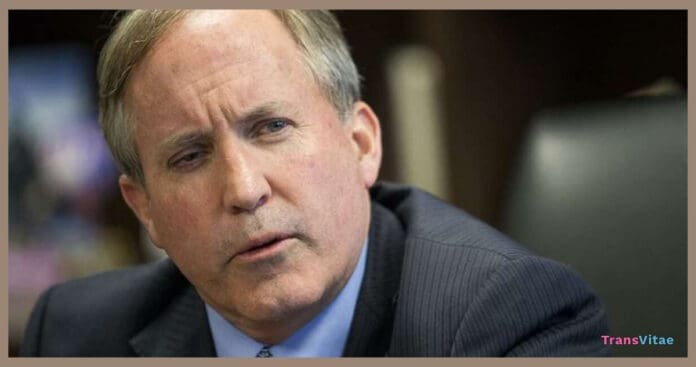In a move that has once again raised eyebrows across the nation, Texas Attorney General Ken Paxton has announced an investigation into USA Fencing, citing alleged violations of state law tied to the organization’s transgender inclusion policies.
The investigation centers around a recent incident in which a competitor, Stephanie Turner, reportedly took a knee rather than compete against a transgender athlete—referred to by Paxton as a “biological male.” Turner was subsequently disqualified from the match. In response, the Texas Attorney General’s office issued a Civil Investigative Demand (CID) to USA Fencing to obtain internal documents, suggesting that the governing body may be engaging in “false, deceptive, and misleading acts and practices” under Texas consumer protection laws.
“USA Fencing is on the wrong side of history and potentially the wrong side of the law,” Paxton stated in a press release. “USA Fencing’s policies are not only potentially illegal, but also deeply insulting to the young women like Stephanie Turner who have sacrificed so much and dedicated countless hours to compete and succeed in competitions.”
Paxton’s comments and the investigation have been met with concern and confusion from transgender advocacy groups and families of transgender youth, many of whom are increasingly wary of Texas’ legal targeting of transgender individuals under the banner of “protecting women’s sports.”
Critics point out that this is far from Paxton’s first foray into regulating trans participation in athletics. His office has previously taken action against various sports organizations and educational institutions that support or permit transgender athletes to compete according to their gender identity. The consistent pattern has left many wondering whether the focus is truly about fairness in women’s sports—or part of a broader political agenda targeting trans people.
RELATED: Texas AG Ken Paxton Escalates War on Trans College Athletes
“It’s baffling that the Attorney General continues to insert himself into youth and amateur sporting events, especially when no actual legal violations have been identified,” said a spokesperson for Trans Equality Texas. “This feels less like consumer protection and more like a message: that trans athletes are not welcome.”
USA Fencing has not yet issued a formal response to the investigation, but the organization’s existing policies have been publicly aligned with the guidelines provided by the U.S. Center for SafeSport and the International Olympic Committee—both of which have frameworks supporting inclusive participation in sport.
The unfolding investigation leaves many transgender athletes and their families caught in the crossfire, uncertain of how state-level legal challenges may impact their access to competitions. For now, the move is viewed as yet another chapter in the intensifying political focus on trans youth, particularly in states like Texas.
As the investigation proceeds, one question remains at the forefront: who exactly is being protected—and who is being targeted—in the name of “fairness”?


